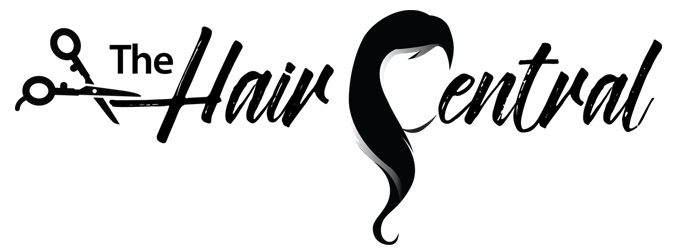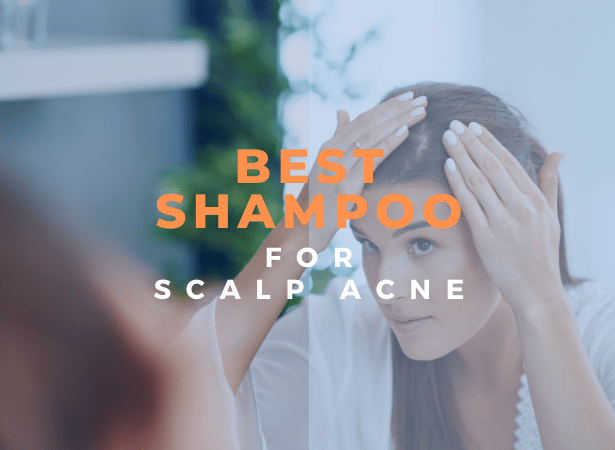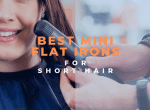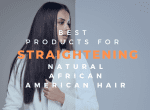Scalp acne is kind of an embarrassing topic, isn’t it? However, the condition is more often than you’d think.
If you’ve been researching, you know that there are tons of different products that promise an easy solution to this itchy situation.
How do you choose one that will offer lasting relief without costing more than an appointment at the dermatologist? To make things easier, we’ve done extensive research to help you pick the best shampoo to get rid of your scalp acne.
Here’s a list of the best brands we’ve found that will remove the annoying pimples on your head.
Top 7 Scalp Acne Shampoo Brands Review

1. Neutrogena – Therapeutic
Neutrogena’s T/Sal Shampoo relieves even severe skin problems. Its main active ingredient is salicylic acid, a gentle ally in fighting buildup, pimples, dandruff, and itchiness.
Most dermatologists recommend this product to some users and they say that it resolved their skin problems quickly. All while being a drugstore-shampoo with a more than reasonable price.
While it’s able to treat serious scalp conditions, this medicated shampoo is still gentle on your skin, since it’s without any added fragrances, color or preservatives. Although that leaves the shampoo with a slight medical smell, it’s more subtle than most other medical shampoos.
2. OVANTE - Ideal for Bacterial Infections
When you’re searching for the right product to fight the pimples on your head, it’s important to understand what causes them. Bacterial infections are often the reason behind inflamed and itchy acne, so in that case, you’ll want to use an antibacterial shampoo.
Unlike other shampoos, this sulfate-free and paraben-free shampoo uses only natural ingredients such as oils, herbal extracts, and vitamins to soothe the skin on your head.
People have praised it for quickly removing painful red bumps and itchy pimples while at the same time smelling nice and herby. Although it’s rather on the pricy side, so you probably won’t use it regularly, it helps to quickly remove unwanted breakouts.
3. CLn - Acne & Dandruff
CLn is designed to fight folliculitis and dermatitis, which might be causing your scalp acne and dandruff. If your skin is on the normal towards the oily side, this shampoo will help remove the excess oil and dead skin cells and clear the clogged follicles.
If you want to avoid mixing many different fragrances, then this smell-free shampoo is what you’ve been looking for.
Go ahead, you can even use it on your beard.
Again, this one is a dermatologists-designed shampoo with a premium price. However, one user said that doctor’s appointments are still the more expensive option for taking care of her mild acne.
4. Puriya - Sulfate-free
Tea-tree oil is another super-ingredient in hair acne shampoos, and Puriya’s family-friendly (and family-sized) scalp clarifying shampoo combines it additionally with arnica, sage, rosemary, and aloe. These extracts hydrate the hair and provide your skin with moisture.
The shampoo is free of sulfates, parabens, and artificial fragrances so it won’t leave your skin and hair dry. It’s suitable for all hair types and can be used even daily.
What we love about this shampoo is that it’s both gentle to the skin and natural-smelling, but it still effectively resolves flare-ups.
5. Nizoral - Ideal for Itchy Scalp
This Nizoral shampoo has 1% ketoconazole, an active ingredient that targets both pimples and stubborn dandruff, relieving you from the itchiness of the skin on your head.
In case you were wondering, dandruff and itchiness are a result of your scalp-cells regenerating faster than they’re supposed to, due to hormones, stress, an inappropriate diet, or genes.
You’ll use this over-the-counter cleanser twice per week, with your regular shampoo in-between, if needed. It’s safe to use on all hair types, even blondes, color-treated or gray hair. Curly-haired users are also praising this shampoo for not drying out their hair.
6. OGX – Refreshing
Pimple breakouts on your scalp are often the reason for product-build up and clogged pores, so it’s important to wash your hair frequently to keep it healthy and strong. You’ll also want to use a product that’s hydrating but not oily to avoid dry ends and stripping strands.
The OGX Tea Tree Mint Shampoo will cleanse any product and organic residue leaving a fresh and minty smell. The shampoo is infused with tea tree oil, peppermint, and witch hazel to hydrate your hair and leave it natural-looking, shiny, and bouncy.
By the way, it’s also an incredibly affordable option.
7. Tea Tree – Vitalizing
If your skin is already protesting your hair-care routine by flaming up with pimples, irritation, and itchiness, the last you want is to add an aggressive shampoo on top of all. Instead, look out for cleansers that will soothe the irritation with ingredients nourish the skin and leave you with a feeling of freshness.
The Tea Tree Special Shampoo adds lavender and peppermint to the main active ingredient, tea tree oil (you guessed it). The combination of those three ingredients gives the shampoo a great and natural smell and provokes a tingling sensation on the skin.
What to Consider in Buying a Shampoo for Scalp with Pimples
Ingredients
To prevent irritated skin and pimples, it’s important to wash your hair often. However, you need to make sure that it's not the shampoo or conditioner that you're using that's causing the bumps on your scalp by clogging your pores.
When choosing a product to treat your acne, look out for the following ingredients:
Ketoconazole or Ciclopirox
Ketoconazole is frequently used in antidandruff medicated products because of its anti-fungal characteristics. This is particularly important when treating seborrheic dermatitis or psoriasis, which are both inflammatory skin diseases.
Hair-care products with ketoconazole are available to buy in drugstores or with a medical prescription if you’re looking for a product that contains 2 or more percent of it.
Salicylic Acid
Another common component that you’ll find in shampoos that treat your acne is salicylic acid. This active ingredient exfoliates your skin and breaks down and removes dead cells, which prevents your pores from clogging. Shampoos that contain salicylic acid are used to soothe dry and itchy scalps.
Glycolic Acid
Glycolic acid has been known by the beauty industry for years and is often used in anti-aging skin products. Only recently have scientists discovered that it’s equally beneficial for the hair, as it provides protection and moisture, keeping it strong and healthy. Hair-care products with glycolic acid in their ingredients are especially popular among the curly-haired.
Jojoba Oil
You’re probably aware of the benefits of using oils for healthy and shiny hair. It’s because of its richness in vitamins and minerals that jojoba oil is used widely in skin, nail and hair products. This essential oil isn’t going to completely fight away the irritating bumps, however, it will reduce acne inflammation and redness.
Tea Tree Oil
Although scalp acne and similar diseases can have different causes, often it’s bacterial infections that provoke them. In that case, what you need is an antibacterial remedy, such as tea tree oil. This oil has been known for a long time as a natural remedy against acne and is also used in soaps.
Type of Shampoo
Shampoos that improve the health of your scalp will typically contain the above-mentioned ingredients. Depending on what type of skin-irritation you’re treating, you’ll choose the most appropriate one.
Of course, you’ll take into consideration the price you are willing to pay for the product and whether you’re treating a mild or a severe condition. We recommend you use gentle products made with natural ingredients, so you don’t provoke any further irritation.
Cause of Acne
When choosing the right product, it’s important to understand what causes the acne breakout. Product build-up can make your pores clog, just as dead skin-cells or natural oil.
Furthermore, bacteria and yeast can be the reason for inflammation and redness of the skin. You may have noticed that working out can make the situation worse, which is why you should not wait too long after a session to shower and wash your hair.
Dermatologist's Assessment and Advice
If you’ve been using hair products to treat the pimples on the head for a while, but nothing happened, it’s time to seek help from your dermatologist. It might be that you’re not-knowingly using the wrong cleanser and just making the situation worse.
Only a professional will be able to tell you what exactly the reason for your preserving skin problems is and recommend an effective remedy.
Harmful Additives
Another thing you need to consider when you’re looking for the right treatment is that you need to avoid aggressive ingredients and harmful additives in the products of your choice.
These are usually added to provide an attractive color and smell to the product but are harming your hair and skin. Instead, look out for natural ingredients, such as essential oils, that are both gentle and effective.
Different Types of Acne-Prone Scalps
Mild
Mild cases of scalp acne include whiteheads and blackheads and are the most common and easily resolved. Probably, you’ll experience it as small pimples along your hairline which can feel itchy. Luckily, they’re easy to treat with frequent hair-washing using a gentle cleanser with active ingredients.
Moderate
Moderately severe scalp pimples include pustules and papules on the skin’s surface. These are red and itchy and can become sore and crusted. You might want to use a medicated shampoo to reduce the inflammation, soothe the affected patches, and ultimately remove the acne.
Severe
If you’ve developed nodules and cysts that you can feel embedded under your skin, that is a case of severe scalp acne. In some cases, it can even lead to hair loss.
If you’ve been trying to get rid of the painful bumps with drugstore products for a while but they persist, you might want to reach out to your dermatologist to check up on you.
Causes of Pimple Breakouts on Your Scalp
Product Build-up
Using too many hair-products such as styling gels, wax or hairspray or not rinsing the hair thoroughly enough after applying shampoo or conditioner easily lets remains of those products build up on your scalp. This can clog your pores or hair follicles which results in annoying bumps.
Not Washing Frequently
Acne is usually the result of pores clogged with sebum, dead skin-cells, hair-products, and bacteria. These can’t exit the pores by themselves.
To keep these out and prevent them from getting inflamed, you should regularly and thoroughly wash your hair with lukewarm water and a gentle cleanser.
Headgear
Hats, hair-accessories or even headphones can carry a lot of bacteria, so make sure you regularly wash or disinfect all your headgear.
If you’re wearing something on your head or around your neck while being physically active and sweating, you should wash your hair and the skin on your neck immediately afterward. Otherwise, the bacteria in the sweat can enter your pores easily and cause pimples.
Clogged Pores
Clogged pores are the main reason behind the annoying scalp pimples and bumps. Dead skin cells, the natural oil that your skin produces, hair-product and organisms living on the skin enter your pores, and, if not washed away, cause scalp acne.
Bacteria
Two main types of bacteria cause the inflammation of the skin that leads to pimples – Propionibacterium acnes and Staphylococcus epidermis.
Apart from these, other micro-organisms can enter your pores and leave you with an itchy and red scalp, namely fungus and mites.
Treatments for Scalp Acne Sufferers
When the bumps on your head are becoming irritating and painful, it’s time to seek some remedies.
Medicated Treatment Shampoo
The key to a pimple-free scalp lies in keeping your skin clean and preventing your pores from clogging. It’s product build-up and excess sebum, the natural oil on the skin, which causes the pimples, so you want to remove those by frequently cleansing your hair with a gentle product.
It’s also possible that the hair-products you’re using are causing the pore-clogging, so be sure to switch to a medicated shampoo until you become acne-free again.
Medications
If it’s not the products you’re using that cause the irritation, and the treatment with over-the-counter shampoo is not showing any results, you might want to consult your doctor for some prescription medicine.
As you need to fight the bacteria that are causing the inflammation, you might be prescribed topical or oral antibiotics, antihistamine, or steroid cream or injections. The doctor could also recommend you light therapy, physical extractions or isotretinoin, in case of severe acne.

Should You Pop A Pimple on Your Head?
The answer to this one is quite straightforward – don’t do it.
Although it might be tough to resist, especially if the pimple is itchy and you keep running your fingers over it, picking at a pimple, no matter if it’s on the scalp or any other spot on your body is usually going to make the situation just worse.
Popping a pimple creates a trauma on the skin and opens it for bacteria to enter and create an even worse inflammation.
How to Prevent Having Pimples on Scalp
If you want to be pimple-free for a long time, here are a few habits which are useful to take up:
Watch Your Diet
Adjusting your diet can affect oil-production and inflammation, and to do so, you should increase the intake of foods rich in vitamins and minerals. Try and consume more foods that contain a lot of Vitamin A and D, dietary fiber, omega-3 fatty acids, zinc, and antioxidants.
Avoid Deep Cleansers
Deep cleansers are meant to remove product build-up, excess oil, chemicals from hair treatments, and irritants from the environment.
Why is that bad? – you might wonder.
Here’s the deal: deep cleansers can dry out your skin excessively, which will let your scalp produce even more oil, leading to clogged pores and pimples.
Limit Hair Treatments
Although you might be tempted to try out different products and treatments to style your mane and make it look thicker and shinier, ultimately what your hair loves most is its natural texture and color.
Keeping it natural and limiting the treatments will improve the condition of your scalp and lead to less irritation and pimples.
Don't Use Oily Shampoos
Even if you have dry hair, don’t use oily shampoos, since they will probably cause more pore-clogging. Using the wrong shampoo can be the actual reason behind the small bumps you want to get rid of.
When washing your hair, massage the scalp and exfoliate it with your fingertips to make sure that you rinse out all product build-up and excess oil.
Don't Use Very Hot Water
Using very hot water to wash your hair can irritate your scalp and remove too much of its natural oil. Irritated skin and damaged hair follicles can let bacteria enter more easily and result in inflammation and acne. You rather want to stick to lukewarm water.
Let Your Scalp Breathe
Using headgear and hair accessories can increase the number of bacteria on your hair and skin. Hairstyles such as ponytails and braids also irritate your scalp if they pull the hair too firmly.
Besides regularly washing all items that you use, you should think about letting your scalp breathe freely as often as possible.
Wash It Regularly
Ultimately, the sure path to a pimple-free scalp is clean skin and hear, which you achieve by washing it regularly, especially after working out or using styling products.
To avoid acne along the hairline make sure to always remove your make-up before going to bed and change your pillow-cases often.
Frequently Asked Questions
How long will it take for the acne to heal?
Usually, the treatment will take four weeks to two months before you see any improvement, so be patient. Also, you might need to continue using a scalp acne shampoo to avoid recurrences.
Make sure not to touch, pop or pick at the pimples to avoid spreading the bacteria and prolonging the healing period and leave you with scars.
Can you buy a scalp acne shampoo and conditioner over the counter in a drugstore?
There are many different products that you can buy in a drugstore and that are efficient in your fight against pimples. Only if you’ve been using them for a while and the condition persists, you might need to seek help from your doctor who will prescribe you medication or a special medicated shampoo.
Are there home remedies for scalp acne?
Natural remedies can provide quick, short-term relief, but they usually don’t tackle the source of the problem. However, you can try out some natural treatments and rinses that, in any case, won’t hurt. Tomato juice, garlic, apple cider vinegar, and jasmine essential oil are among the most popular ones.
Can ingrown hair bumps on scalp cause pimples?
You might indeed be confusing the lumps on your scalp with acne when they’re actually ingrown hair. This can occur particularly after cutting or shaving your hair. Just like on any other part of your skin that’s covered in hair, ingrown hair bumps can occur on the head or the back of the neck as well.
Conclusion
Using the right shampoo will most probably soothe your skin and remove the annoying pimples from your scalp.
Make sure that you find a gentle product that won’t cause any further irritation and use it frequently to wash your hair. Anti-bacterial and anti-inflammatory ingredients such as tea tree oil, salicylic acid, glycolic acid, ketoconazole, and jojoba oil will get to the source of the problem and keep your scalp clean and healthy.
You can choose between excellent drugstore products, such as Neutrogena’s T/Sal Shampoo or the Tea Tree Special Shampoo or seek help from your doctor for prescription medical treatments if the problem persists.










